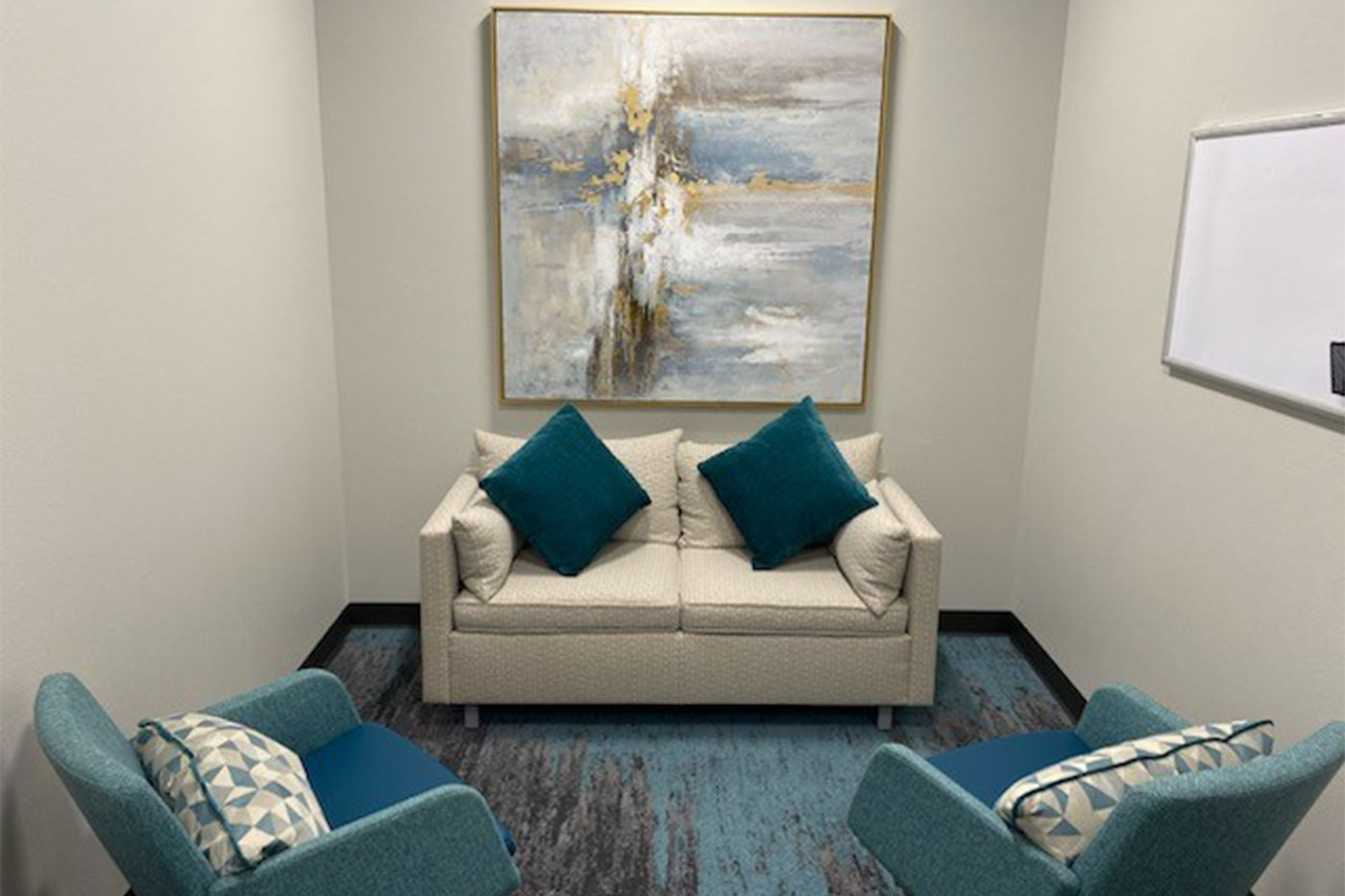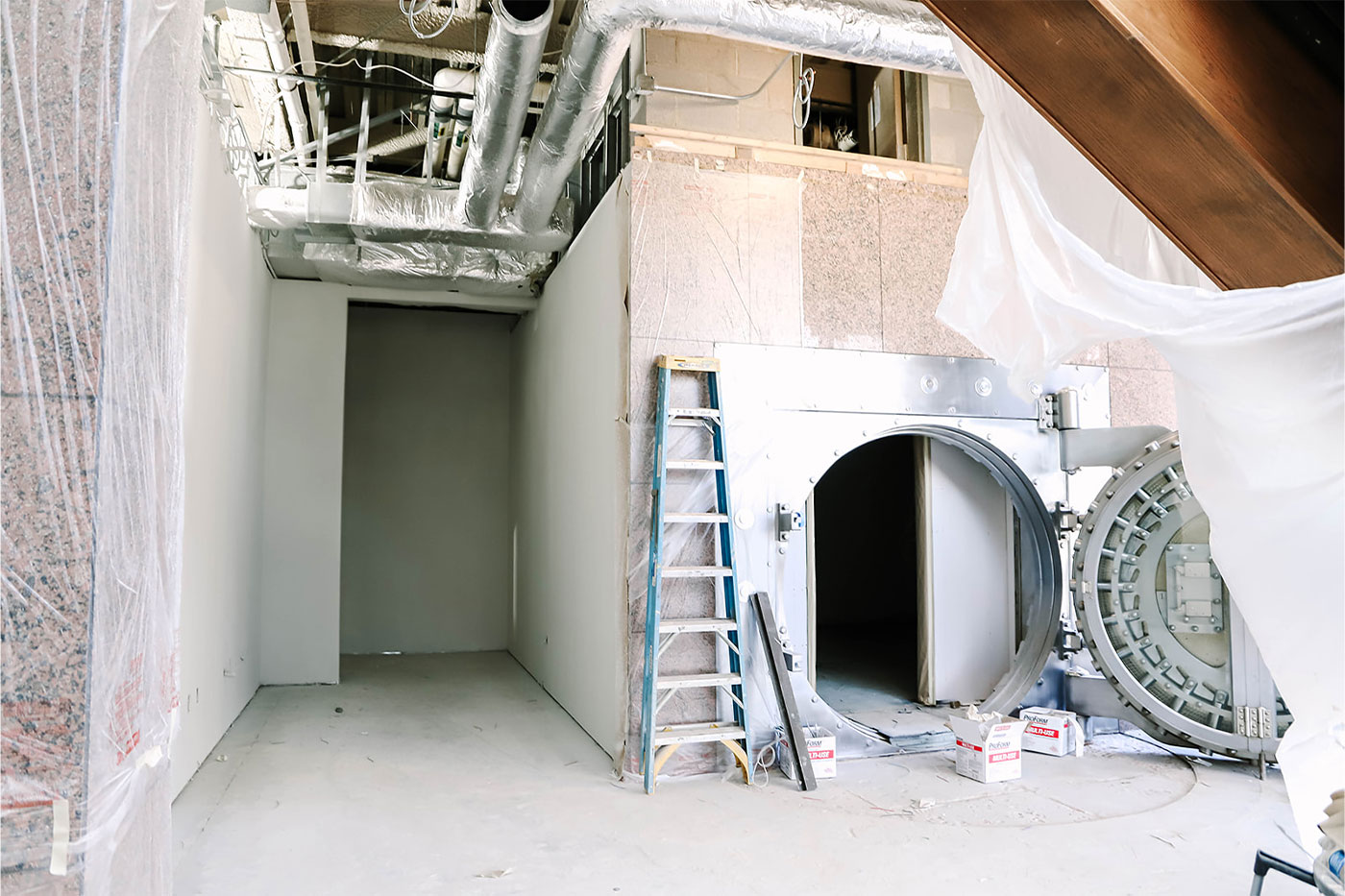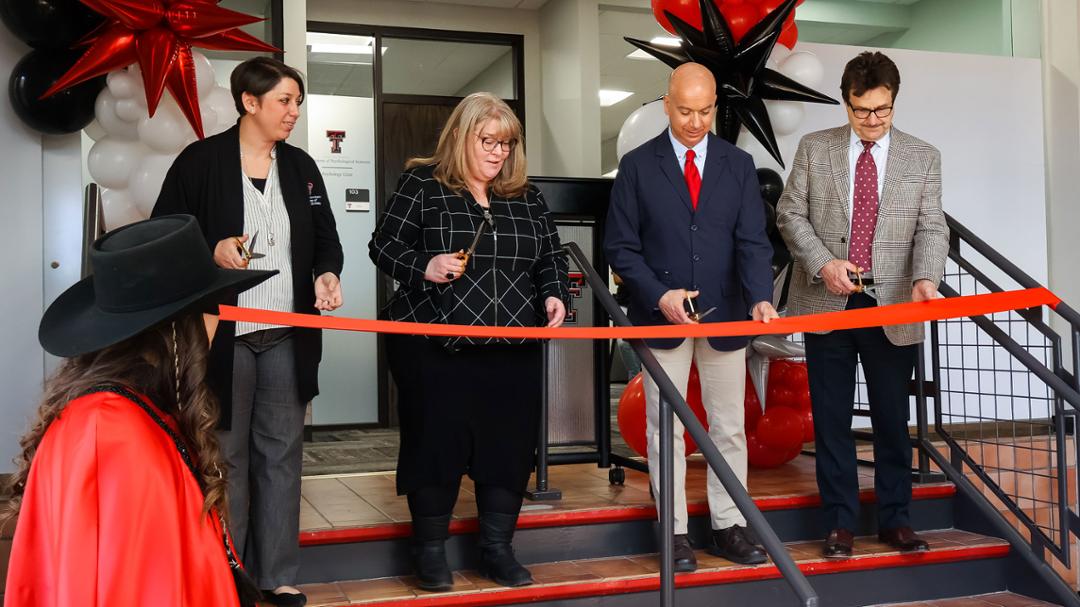The facility has been operational since August and serves the needs of the campus community and beyond.
May is Mental Health Awareness Month. If you're experiencing mental health distress, Texas Tech has resources available at Beyond Okay.
As the need for more mental health resources and professionals has rapidly expanded in recent years, Texas Tech University leadership seized the opportunity to respond in a bold and innovative way.
The result is a new Psychology Clinic located on the first floor of the Texas Tech Plaza building at the southeast corner of 19th Street and University Avenue. The facility, funded by Texas Tech, represents a significant upgrade over its on-campus predecessor within the Psychological Sciences building.
“The Department of Psychological Sciences has a history of bringing together the benefits of research, clinical training and service to the university and surrounding community,” said Texas Tech President Lawrence Schovanec. “The renovated Psychology Clinic will expand that service and Texas Tech's commitment to fostering mental health and wellness.”
The facility opened in August as the new school year began while a March 28 ribbon-cutting attended by university officials provided an official touch.

“One of the great things to come out of the COVID-19 pandemic was some additional funding to support wellness initiatives and improving student outcomes across campuses,” said Megan Thoen, the clinic's director. “We were granted additional funding to upgrade some of our technology to better serve our trainees who then in turn serve the Texas Tech community and beyond.”
The clinic helps support two distinct academic programs: the clinical psychology doctoral program and the counseling psychology doctoral program. Each has different training requirements, and the clinic balances the needs of students in both areas.
Most students are at least in their second year of graduate coursework when they start at the clinic, meaning they already have training similar to that of a master's level clinician.
At any given time, the clinic can be a whir of activity with 20 to 30 therapists on site and four to six supervisors overseeing their work. The facility features treatment rooms that can accommodate individual therapy sessions or small groups for research initiatives depending on faculty and student needs. Likewise, multiple areas are available for students to get their work done.
“They can use space as they see fit,” Thoen said. “We want this to be a place where they want to come work and collaborate, where they can learn and grow.”

It is designed for efficient traffic flow with clients and therapists able to move from the lobby to therapy and back in a smooth and effective way. Rooms are equipped to handle in-person and remote (telehealth) therapy. The details matter because the clinic serves more than 200 clients through 2,000 appointments each year.
“It is busy,” Thoen said. “We don't have session limits; we will see you as long as you need to be seen, and we will transfer your case if the therapist seeing you leaves the clinic because of their academic trajectory.”
The clinic has a three-pronged missional focus: train graduate students, serve the community, and conduct research to promote best practices in the field.
“The Department of Psychological Sciences and the Psychology Clinic have been offering services to the campus and greater Lubbock community since the 1980s,” said Tosha Dupras, dean of the College of Arts & Sciences. “This new facility stands as a testament to the department and college commitment to provide mental health services and promote well-being in our community. The facility is larger and allows us to provide more services, and its new location provides community members easier access to these services.
“The facility, though, is more than just a physical space. It is a sanctuary where individuals can find solace, understanding and healing, and we are proud to have opened its doors.”

The sparkling facility represents the culmination of a vision several years in the making. Thoen originally was hired in March of 2020 just before the pandemic took hold and scuttled the project's timeline. After that came numerous supply-chain issues that caused additional delays.
“Those things did push us back,” Thoen said, “but it also gave us more time to adapt the space as we thought we would need. This was going to be a big move and give us more space.”
The previous on-campus clinic had been in its location since the 1980s and had undergone only minor renovations in terms of paint, carpet and furniture through the years.
As many as half of the current clients are Texas Tech students, Thoen said, as the clinic receives references from the Student Counseling Center, where students are eligible for eight free sessions per academic year. The clinic can then address additional needs after that.
A focus that is both near and far
“We offer a reduced rate for Texas Tech students, graduate students and (Texas Tech University) Health Sciences Center students,” Thoen said. “We are a sliding fee clinic based on income, and the maximum amount they pay per session here is $50.”
The clinic serves another, broader, role as well because the surrounding region is dramatically short of mental health resources, particularly in more rural parts of West Texas.
“We have people coming from New Mexico, the Amarillo area, the Midland-Odessa area and elsewhere across the region,” Thoen said. “Because we are one of the lower-cost clinics in town, we're able to serve a wide variety of people. We are designed for the future to increase our capacity.”
Thoen, who is a graduate of Texas Tech's counseling psychology program, said the clinic has not had to do much recruiting to build its client base because it has a longstanding reputation for providing quality services at a reduced cost and still working to ensure students' training needs are met.

Clinic supervisors are selective about the specific types of cases they allow graduate students to take. Potential clients with active suicidal ideation or those who have displayed symptoms of active psychosis and are not taking prescribed medication, as well as cases involving severe trauma or minors with severe autism are referred to a more experienced or specialized therapist.
“We refer those cases out,” Thoen said. “We don't want our new therapists feeling like they are being thrown into the deep end with their training, and we want to ensure we're providing the best care possible for our clients.”
Every aspect of the clinic has been designed with therapists and clients in mind. Privacy, safety, comfort and accessibility are emphasized throughout.
“It is nice to be community-facing here,” Thoen said. “That is who we serve. We have worked to make sure we can meet as many possible needs as we could think of. Our clients who have seen both our old location and our new one love it here. There are several community-facing clinics in this building, so we have a lot of folks in and out of Texas Tech Plaza, and that is a really nice thing."

